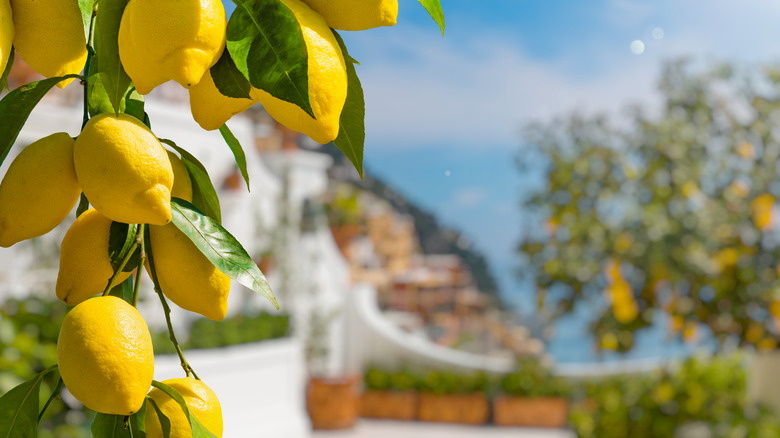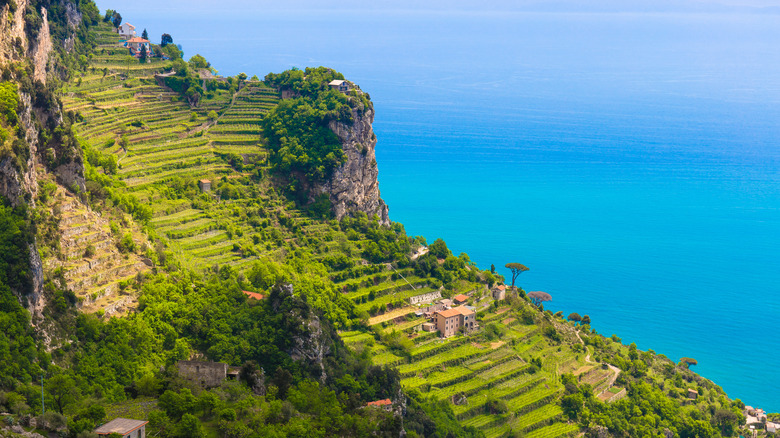How Almafi Coast Lemons Are Being Affected By Climate Change
A recent initiative called "Lemon Tours" has launched in Amalfi, Italy. As CNN reports, the tours have begun so that tourists to Amalfi can see the region's famous Sfusato Amalfitano, which is also known as the Amalfi Coast lemon, and help revitalize the dying industry.
The Sfusato Amalfitano is a lemon protected by Geographical Indication, meaning it is unique to the Amalfi Coast (per Visit the Amalfi Coast). What makes it so unique is its elongated shape, rich aroma, and a large number of essential oils, terpenes, and vitamin C. These make the lemon a perfect source for limoncello, for which the Amalfi Coast is famed.
In addition, the lemon farms form the backdrop to the dramatic Amalfi coastline which adds to the intrepid tourist's experience. Travel Scratchpad describes how, along the mountainside, farmers have cultivated terraced lemon groves. These groves have to be worked into the mountains to receive protection from the north wind while still facing the sun.
The future looks uncertain
The reason why lemon tours have begun in Amalfi, however, is that lemon farming is not profitable. "Without tourism this is not sustainable," Gianmarco Aceto, a member of the generations-long lemon farming family the Acetos, told CBS. "It's impossible to compete with the other countries that produce lemons, because they have less cost."
That was in 2021. However, the issue facing lemon farmers has a long history. In 2012, The Guardian learned that one orchard owned by a Roman never managed to provide a return on her investment in 15 years. This is an issue bigger than the economy or identity of the area. It is also an ecological one as the roots of lemon trees keep the terraced land in place. Without the orchards, The Guardian writes, landslides will become inevitable. The process is already happening as CNN reported on July 21 that Amalfi's lemon terraces have "decreased from 72 hectares to 48," since 1954 according to Giorgia De Pasquale, of Roma Tre University. Part of this is due to farms going out of business due to direct competition. The other issue is that the younger generation doesn't want to go into a career path beset by such financial difficulty. In 2017, The Christian Science Monitor said the average farmer's age was 60.
The Christian Science Monitor also claims climate change is already exacerbating the problem raised by fewer lemon orchards. The more intense rainfall brought by worsening climate conditions are causing terraces that have not been maintained to collapse.

